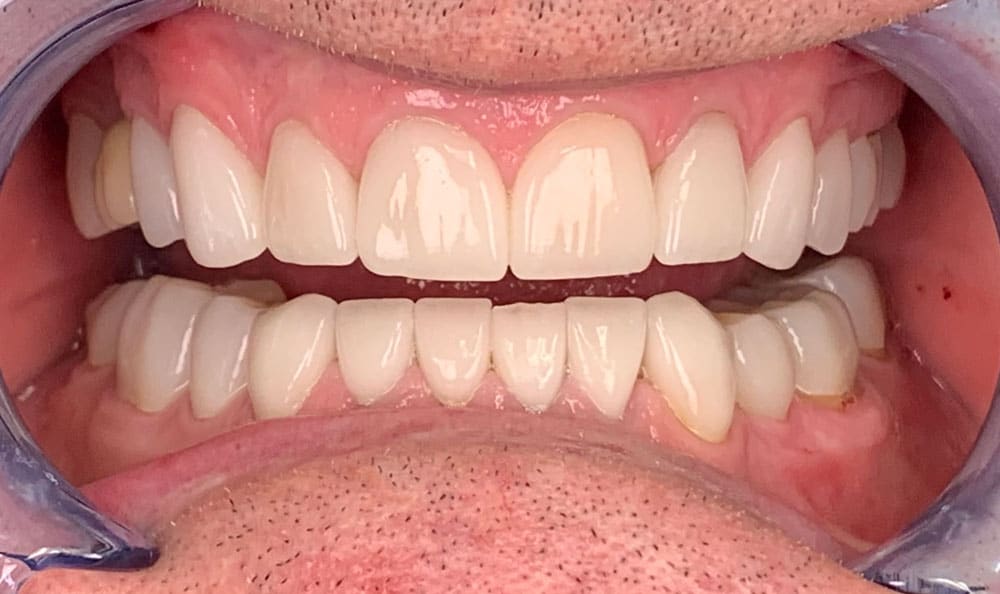The most frequent cosmetic dentistry procedure is tooth whitening. One of the least aggressive and expensive dental procedures for discolored teeth is bleaching, as opposed to more invasive techniques like veneering, crowning, or bonding to improve a person’s smile.
Currently, the two main types of bleaching chemicals are hydrogen peroxide and carbamide peroxide. The peroxide oxidizing agent removes the stain, penetrating the porosities in the enamel’s rod-like crystal structure.
Is teeth bleaching worth it?
Teeth bleaching might be a secure choice to achieve a whiter smile. However, it’s crucial first to discuss your teeth bleaching service near you with a dentist and conduct some research.
The modifications are likely transient and disappear once the user stops using teeth-bleaching solutions. Even if the improvements persist, it’s unclear whether they will be bad for your helicopters.

The type of product you’re using and how it fits in your mouth should also be considered. Keep hydrogen or carbamide peroxide away from your gums and teeth to prevent sensitivity and irritation.
The benefits of teeth bleaching include
Preventive care:
As a person ages, teeth whitening can be used as a preventative measure to keep their teeth healthy and bright. Whiter teeth can motivate patients to wash their teeth more frequently, which will help keep potentially hazardous germs off the teeth and stop decay and damage.
Affordable treatment:
Most patients are concerned about cost, and many may choose at-home whitening because they believe it is more affordable. But when it comes to dental procedures, teeth whitening can be one of the least expensive and most widely available aesthetic procedures.
Although over-the-counter medicines may initially cost less, they typically function less well, involve more effort, and must be purchased frequently. A patient can significantly whiten their teeth with the assistance of a qualified dentist while avoiding side effects and ensuring they receive the necessary treatment with Urgent Dental Care.
Confidence in a smile:
A lot of individuals value the beauty of a bright, sparkling smile. Patients’ confidence can increase due to having whiter teeth, making them more successful daily. The stress of self-whitening can also be eliminated by professional whitening from a person’s everyday routine.
Additionally, compared to other approaches, this procedure is less expensive. Your teeth color will mainly stay the same after bleaching. There won’t be any issues if the color changes, as the tooth color can be quickly restored to its former state.

Disadvantages of Dental Bleaching
People with sensitive teeth may not want to bleach their teeth. Your teeth get very white right away. You can come across as having utilized teeth-whitening methods by many individuals. You should discuss this with your dentist if you have symptoms of gum disease or sensitivity issues. You can be forbidden from doing this by your dentist. Tooth bleaching can sometimes return to its original color because it is not a permanent method of tooth whitening.
Your teeth will darken again, and the bleaching effect will go away if you don’t take care of them after bleaching, such as if you drink an excess of coffee or tea.
Conclusion
We covered all teeth-bleaching techniques in this post, along with their benefits and drawbacks. You can whiten your teeth using tooth bleaching, which is less expensive, more practical, and more successful than other teeth whitening techniques.
The most excellent technique to get rid of yellow and stained teeth is teeth whitening. It would help if you were informed that bleaching your teeth works best on people with yellow teeth. Bleaching won’t help much if your teeth have turned brown. Overall, most people can safely and effectively bleach their teeth. Contact a Teeth Bleaching Dentist if you have yellow teeth and are considering teeth whitening treatments.







